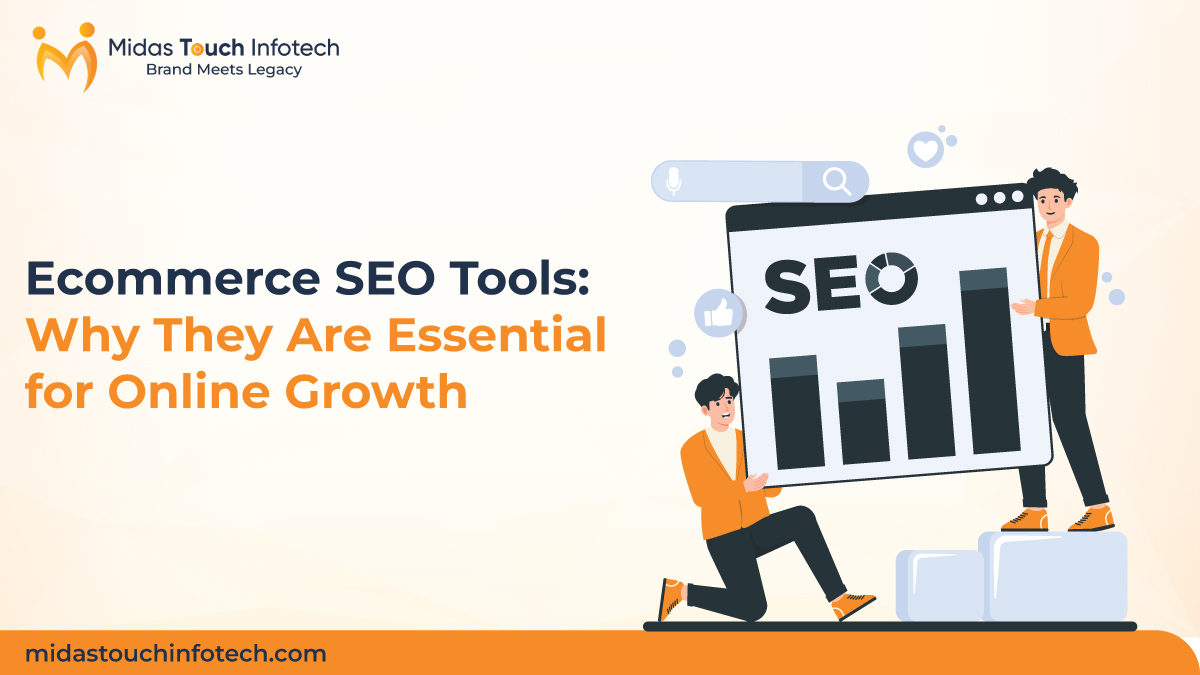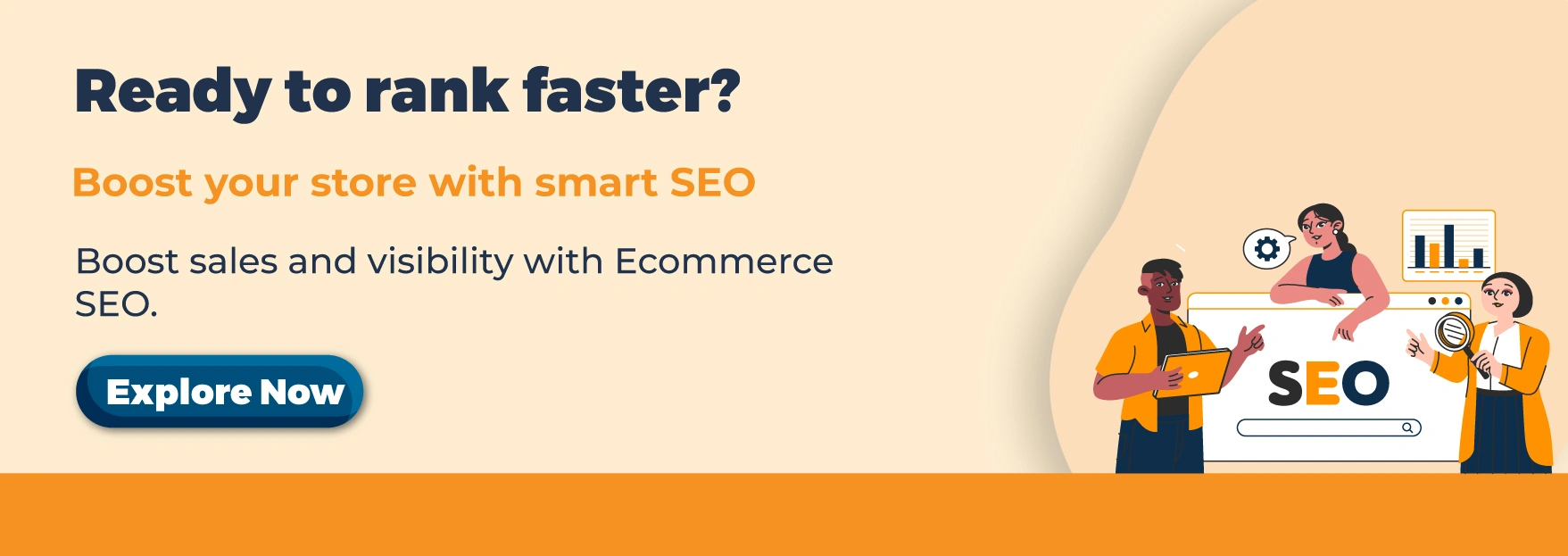
Ecommerce is booming at an unprecedented pace. According to Statista, global retail ecommerce sales are expected to reach $8.1 trillion by 2026, with more businesses shifting online than ever before. While this growth brings massive opportunity, it also fuels intense competition. Standing out in crowded marketplaces like Amazon, Flipkart, or your own Shopify store requires more than attractive products it demands visibility on search engines.
Search engines remain the primary gateway for buyers. Research by BrightEdge shows that 68% of online experiences begin with a search engine, and organic search accounts for 53% of website traffic. For businesses, this makes SEO not just a marketing channel, but a growth engine.
This is why companies offering ecommerce SEO services in India are becoming indispensable. They leverage specialized tools and strategies to help ecommerce businesses capture attention, rank higher, and convert browsers into loyal customers.
But what exactly are ecommerce SEO tools, and why should you integrate them into your growth strategy? Let’s dive deeper.
What Are Ecommerce SEO Tools?
➣ Definition and Purpose
Ecommerce SEO tools are digital solutions designed to help online stores optimize their websites for search engines. Unlike general SEO tools, they account for ecommerce-specific challenges such as duplicate product descriptions, faceted navigation, and large inventories.
➞ Their focus spans across:
○ Technical SEO – Ensuring crawlability and indexation
○ On-Page SEO – Optimizing product titles, descriptions, and images
○ Off-Page SEO – Tracking backlinks and brand mentions
○ Content SEO – Aligning blogs, guides, and product content with buyer intent
➣ Types of Ecommerce SEO Tools
○ Keyword Research Tools – Discover high-intent, purchase-driven keywords
○ Site Auditing Tools – Detect errors, broken links, or performance issues
○ Rank Tracking Tools – Monitor keyword rankings across regions and devices
○ Content Optimization Tools – Align content with semantic relevance
○ Backlink Analysis Tools – Evaluate authority and link-building opportunities
○ Technical SEO Tools – Check crawl depth, structured data, and site speed
Why SEO is Crucial for Ecommerce Websites
➣ Organic Traffic Drives Sales
Paid ads may bring immediate visibility, but they can be expensive and unsustainable long-term. Studies show that organic search drives more traffic to ecommerce sites than paid advertising combined. Organic clicks also carry higher trust and ROI.
➣ Competition is Fierce
From Amazon to niche D2C brands, ecommerce competition is fierce. Without strong SEO, your products risk getting buried under thousands of listings. A strong organic presence allows smaller brands to compete effectively against giants.
➣ Search Intent Matches Buyer Intent
When users search for “buy wireless headphones online” or “best running shoes under ₹2000,” they’re signaling high purchase intent. Long-tail keywords like these often lead to higher conversion rates—and SEO tools help businesses discover and target them.
Key Benefits of Using Ecommerce SEO Tools
➣ Improved Search Engine Rankings
SEO tools identify ranking gaps and opportunities. For example, they highlight product categories you’re not ranking for but your competitors are. Real-time data helps optimize titles, descriptions, and tags.
➣ Better Technical Performance
Site health directly impacts visibility. Tools can:
○ Fix crawl errors and broken links
○ Improve page load speeds
○ Ensure proper indexing of large inventories
○ Enhance mobile optimization
➣ Enhanced User Experience
Search engines prioritize websites with better user experiences. Ecommerce SEO tools highlight UX/UI issues like poor navigation, thin content, or non-optimized images. A better experience means lower bounce rates and stronger engagement.
➣ Competitor Insights
Your competitors are already optimizing. SEO tools provide insight into their strategies:
○ Which keywords they target
○ Their backlink sources
○ Content that drives their traffic
These insights help you benchmark and outperform them.
➣ Time and Cost Efficiency
Automated audits, reporting dashboards, and keyword alerts save hours of manual work. This efficiency reduces reliance on large SEO teams while still maintaining accuracy and scale.
Also Read: The Top 10 Ecommerce SEO Company in India to Boost Your Store’s Visibility
Top Ecommerce SEO Tools You Should Consider
➣ Keyword Research
○ Ahrefs – Comprehensive keyword explorer with click metrics
○ SEMrush – Competitive analysis and keyword gap discovery
○ Ubersuggest – Affordable option for small ecommerce businesses
➣ Technical SEO
○ Screaming Frog – Powerful crawler for large sites
○ Google Search Console – Free essential tool for indexing and errors
○ Sitebulb – Visual reports for auditing site architecture
➣ Rank Tracking
○ AccuRanker – Accurate daily rank updates
○ SE Ranking – Keyword tracking with competitor insights
○ Moz Pro – Beginner-friendly rank monitoring
➣ Content Optimization
○ Surfer SEO – AI-powered on-page optimization
○ Frase – Content research and AI writing assistant
○ Clearscope – Semantic keyword enrichment for blogs and guides
➣ Backlink Analysis
○ Ahrefs – Best-in-class backlink database
○ Majestic – Historical link tracking
○ Monitor Backlinks – Easy tracking of acquired and lost links
Also Read: Ultimate Ecommerce SEO Checklist for Boosting Online Sales
Common SEO Challenges for Ecommerce Sites
Even the best-designed ecommerce stores face SEO hurdles:
○ Duplicate Content – Product descriptions reused across multiple SKUs
○ Slow Page Load Times – Heavy images, scripts, or plugins
○ Poor Mobile Optimization – Critical as most users shop via mobile
○ Weak Internal Linking – Missed opportunities to guide users and bots
○ Ignoring Structured Data – Schema markup for product details, reviews, and pricing is often overlooked
○ Ecommerce SEO tools help detect and fix these issues before they affect rankings and sales.
How to Choose the Right SEO Tools for Your Ecommerce Business
➣ Define Your Goals
Are you aiming for traffic growth, higher conversions, or technical fixes? Clarity guides tool selection.
➣ Evaluate Features vs Needs
Not every ecommerce store needs enterprise-level tools. Small businesses may start with lightweight solutions.
➣ Consider Integration with Ecommerce Platforms
Ensure compatibility with Shopify, WooCommerce, Magento, or BigCommerce. Tools that sync directly with your platform save time.
➣ Look for Scalability and Reporting Options
As your store grows, your tools should scale. Dashboards and automated reporting are essential for larger teams.
Best Practices for Using Ecommerce SEO Tools Effectively
○ Perform regular audits (monthly or quarterly)
○ Track KPIs like traffic, conversion rate, and keyword positions
○ Align SEO with marketing campaigns for maximum visibility
○ Stay updated on algorithm changes to adapt strategies quickly
Stop Guessing Start Scaling with the Right Ecommerce SEO Strategy
Ecommerce growth is no longer about simply listing products online it’s about ensuring customers find you before your competitors. By integrating the right SEO tools into your strategy, you gain the ability to monitor performance, uncover hidden opportunities, and stay ahead in a crowded market.
If you’re looking for expert guidance, partnering with an experienced provider of ecommerce SEO services in India can give your business the competitive edge it needs. These agencies combine advanced tools with proven strategies to deliver sustainable online growth.
→ Key Takeaways:
○ SEO tools don’t replace strategy they enhance it.
○ They improve rankings, boost conversions, and optimize user experiences.
○ They’re essential for long-term ecommerce scalability.
Call to Action: Evaluate your current SEO toolkit. Are you leveraging the right ecommerce SEO tools to maximize your online potential? If not, now is the time to start.





